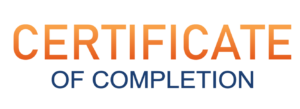Soft Sales Skills For Sales People
- Description
- Curriculum
Soft Sales Skills: Master All the Interpersonal Selling Skills
Soft sales skills are both science and art. To become a sales expert, you need both hard sales skills and soft skills. This sales training course takes you on a learning journey to build a foundation of interpersonal soft skills to connect and develop strong relationships in your sales career.
This 11-video lesson soft skills course includes a 70-page ebook to download and is designed to help salespeople understand essential non-technical soft skills for success in the complex selling environments of today and tomorrow. The program highlights the skills for the way we think, the way we interact with others, how we manage ourselves, and how we communicate.
Soft skills include interpersonal interaction, critical thinking, communication, listening, time management, mindset, and empathy. As a result, well-developed soft sales skills make salespeople more successful in the sales process, and they complement the harder selling skills. Another benefit of soft sales skills in a sales role is that they help people adapt to changing circumstances. Being able to communicate with customers effectively during a time of uncertainty or collaborate with others when solutions aren’t immediately obvious is hugely important.
In this online sales training course, you’ll learn:
- All the ‘soft skills for sales’ needed to succeed in your career
- Identify your own sales tendencies for the various selling situations
- Recognize when soft skills are needed in the sales process
- How to blend soft and hard sales skills to win more deals
Through a series of interactive, bite-sized video lessons, you’ll develop the soft sales skills you need to deliver great presentations, communicate effectively, build relationships, listen to uncover opportunities, use emotional intelligence, etc. It is often said that hard sales skills will get you in front of a customer, but you need soft sales skills to win over and keep the customer.

Start your journey to soft skills excellence today with our soft sales skills training course!

-
1Soft Sales Skills Training PreviewPreview Video lesson
Soft Skills Training for Sales Professionals from The Digital Sales Institute is a video-driven sales training program designed to help salespeople understand essential non-technical skills for success in the complex selling environments of today and tomorrow. The program highlights the skills for the way we think, the way we interact with others, how we manage ourselves, and how we communicate.
-
2Introduction to Soft Skills for Sales6.00
You’ve got the technical knowledge, the sales training, the product knowledge, the sales pitch experience, and the functional skills to work through the entire sales process. You have expertise in your field. You may also have mastered the tasks and activities required to reach your revenue targets.
But there’s something else you need to succeed in selling. No matter how advanced your technical and hard selling skills are, you’ll need soft skills, too.
-
3What are soft sales skills14.00
Soft sales skills are broadly classified as a combination of personality traits, habits, behaviors, and social attitudes that allow a salesperson to communicate effectively, collaborate, and successfully manage their tasks. Salespeople with good soft skills tend to have strong situational awareness and emotional intelligence to navigate difficult sales environments while still producing positive results.
-
4Emotional IntelligenceVideo lesson
Tending to your emotional intelligence brings new opportunities from discovering new sales tactic, having a eureka moment, connecting the dots between two issues, getting involved in a lively sales conversation with a customer.
Research shows that one of the most important foundations of emotional competence is “accurate self-assessment” was associated with superior performance among several hundred people from twelve different companies.
-
5
-
6Non-Verbal Sales Communication12.00
Non-verbal communication is the message we send to others without using any words. We send signals and messages to others through expressions, gestures, and body postures. Through monitoring your own gestures and those of your customers (facial expressions, posture, etc), you will be able to maximize your own communication, plus you’ll be able to read into how a person is feeling.
-
7Listening Communication SkillsVideo lesson
There is difference between hearing and listening. Hearing is purely physical, whereas listening involves not only hearing sounds but also responding. Selective listening requires concentration and attention. It also involves the ability to take in the whole message, accepting what is said without judging, understanding not only the words spoken but also the feelings that underlie the words.
-
8Using Empathy In Sales23.00
The modern buyer wants to feel heard, acknowledged, understood, and appreciated. These are not just business requirements but basic human characteristics. It’s something we all want, and it’s heightened when we have a question, a problem or need an answer. A first step in understanding empathy is to figure out what it means to you in sales or business terms. The ability to empathize has real business value.
-
9Confidence as a Sales Soft Skill26.00
Confident and assertive salespeople inspire confidence in others: their customers, their audience, their peers, their bosses, and their friends. The ability to gain the confidence of others is one of the key methods in which a self-confident salesperson finds success. The good news is that self-confidence and assertiveness can be learned and built on and it’s well-worth the effort.
-
10Assertiveness in Your Sales Role22.00
Sales assertiveness and aggression are two very different things, although the two qualities can become somewhat confused. Sales aggression involves disregarding other people’s feelings, whereas assertiveness is a tendency to stand up for our personal values and constructively argue our own corner.
-
11Creativity in Sales22.00
‘Creative thinking is defined as the thinking that enables salespeople to apply their imagination to generating ideas, questions and hypotheses, experimenting with alternatives and to evaluating their own and their peers’ ideas, final plans, tactics and processes.’ So, creative thinking really boils down to its impact on your productivity and ability to solve challenges.
-
12Growth Mindset in Sales15.00
Growth Mindset states that a person’s talents and abilities are not fixed at birth. but can be enhanced by effort, focus, learning, and persistence. The answer to the question “Are your sales abilities and talents set in stone, or can they be developed?” has enormous implications for how you think, feel, and perform.
-
13Time Management in SalesText lesson
Time management is learning to plan out your available time and control the amount of time you spend on specific tasks in order to work more efficiently. Time is the most valuable resource you have. Once it’s gone, it's gone forever, so learning to manage it is a critical skill.
-
14Soft Sales Skills Course E-Book DownloadText lesson
Download the soft sales skills course ebook.





